- Home
- Patricia McLinn
Wyoming Wildflowers: The Beginning
Wyoming Wildflowers: The Beginning Read online
Wyoming Wildflowers: The Beginning
A Novella
Patricia McLinn
~
Wyoming Wildflowers Series
Novella – Wyoming Wildflowers: The Beginning (Snowberry)
Book 1 – Almost a Bride (Indian Paintbrush )
Book 2 – Match Made in Wyoming (Fireweed)
Book 3 – My Heart Remembers (Bur Marigold)
Wyoming Wildflowers Trilogy Boxed Set, 3 Books in 1
~
Copyright Patricia McLinn
ISBN: 978-1-939215-28-4
www.PatriciaMcLinn.com
~
Dear Readers: If you encounter typos or errors in this book, please send them to me at: [email protected]. Even with many layers of editing, mistakes can slip through, alas. But, together, we can eradicate the nasty nuisances. Thank you! - Patricia McLinn
Table of Contents
Wyoming Wildflowers: The Beginning
CHAPTER ONE
CHAPTER TWO
CHAPTER THREE
CHAPTER FOUR
CHAPTER FIVE
CHAPTER SIX
CHAPTER SEVEN
CHAPTER EIGHT
CHAPTER NINE
CHAPTER TEN
CHAPTER ELEVEN
CHAPTER TWELVE
CHAPTER THIRTEEN
CHAPTER FOURTEEN
CHAPTER FIFTEEN
CHAPTER SIXTEEN
CHAPTER SEVENTEEN
CHAPTER EIGHTEEN
CHAPTER NINETEEN
CHAPTER TWENTY
CHAPTER TWENTY-ONE
EPILOGUE
Wyoming Wildflowers series
A bit more about Wyoming Wildflowers
About the author:
EXCERPTS
Almost A Bride
Jack’s Heart
CHAPTER ONE
Denver — thirty-five years ago
Wednesday
“C’mon, c’mon, hurry up! Nobody cares our bus broke down. Just want a good time at curtains up!”
“I swear, if he says the show must go on, I’ll clobber him.”
Donna Roberts laughed at her roommate’s grumble. Lydia let the company’s chief nagger get under her skin at the best of times. For Lydia, like most in their national touring production of “Sweet Charity,” those best times came only when performing.
Now Lydia groaned. It also got under her skin that Donna was not among that most. “Don’t tell me you can still laugh.”
The two-and-a-half days since closing in Omaha had been tough. They’d also been a breath of fresh air and real life to Donna.
Not that being in a national touring company wasn’t rewarding. The weeks of rehearsals in New York had been amazing. Learning songs and choreography had left her walking on air — metaphorically. Literally, her feet had ached like crazy. So, months on the road wore off the gloss. That was only natural.
“C’mon, c’mon,” Brad shouted again. “Get your stuff to your rooms, get what you need, and back here in twenty.”
“We would if we could,” Lydia muttered.
Crew that had been on the bus should have been at the theater hours ago to prep for curtain. They’d slung bags into the lobby pell-mell sending arriving’s routine confusion into chaos.
Donna slid off her coat to drape it on the lobby’s old-fashioned banister. No way was she risking her prize to the protruding corners and edges of the luggage pile. She stepped over a bag, slid her foot into a crack, and stretched toward a slice of blue that might be . . .
“Sound-check top of the hour, everybody but Charity—”
“Sure, Miss TV Star gets a pass,” Lydia hissed to Donna.
“ — then run-through only before curtain. Run-through only!” Brad shouted. “Twenty! Not a second more. Go, go, Go!”
Donna shifted her weight to her front leg. She elbowed aside a knobby canvas bag with something protruding, and . . . Yes, it was her bag. If she could budge that duffel, which had to outweigh her, and the suitcase on top of it —
She stopped, frozen by the sensation of a spotlight trained on her, when she was neither on stage nor a star. Still, from her high school and college days, she wasn’t unfamiliar with the experience. This brought similar warmth across her chest and throat, while her fingers and toes went cold, butterflies rioted in her stomach, and her heart swelled with a rightness. Yet this was different . . .
Yes, that was it. Each element was even warmer, even colder, even flightier, and carried far, far more rightness.
Slowly, she lifted her head.
A tall young man with broad shoulders stood at the edge of the company’s chaos. He wore a blue-striped shirt tucked into jeans, topped by a plain tan winter jacket, and a dark brown cowboy hat. She had never seen a cowboy hat look more at home on anyone, including John Wayne and Steve McQueen.
He wasn’t the most gorgeous man she’d ever seen. She’d been in the business for a year and a half now, and she’d seen a fair number of drop-dead gorgeous guys. Feature for feature, he didn’t match up. No way.
Attractive, absolutely. Appealing, oh, yes. And something else . . . Real. That was it. Real.
He looked back at her steadily, almost solemnly.
Deep in his eyes, a light burned that she couldn’t quite catch. Almost as if she glimpsed — Donna sucked in a breath.
The sound snapped her trance, and she broke the look.
What had gotten into her? He probably wasn’t even looking at her. Most likely, she’d caught the edge of somebody else’s spot. Plenty of the girls were knockouts — they sure were taller, with legs that went on and on and on, while Donna’s just went.
He was probably looking at Lydia or Raeanne or MaryBeth or Nora. She hoped not Nora.
She looked back at the young man.
He was looking at her.
Only at her.
Her heart ba-BOOMed like the bass drum.
“Let’s go, let’s go! C’mon, Roberts. You asleep in there?”
Donna jolted, nearly losing her balance. “My bag. Bottom —”
Before her mumble was half out, the tall young man strode forward, removed duffel and suitcase with ease, and scooped up her bag, presenting it to her like it weighed nothing.
She stared into steady gray eyes with a spark that —
“Roberts!” Brad shouted.
She grabbed the handles of her bag, and lugged it behind her as she retraced her path through the dwindling mass of bags. At the edge, she turned back. The young man stood where she’d left him, watching her.
“Thank you.”
“Welcome.” He smiled. And drop-dead gorgeous didn’t hold a candle to him.
“Donna! Not holding this elevator if you don’t get in now,” Lydia yelled.
“Thank you very much!” She wheeled, grabbed her coat, and ran for the elevator.
****
Ed Currick remained where he was, watching the closed elevator door until physiology forced him to blink.
In his life he’d been thrown by horses, bulls, and a tractor. Nothing had ever knocked the breath out of him the way she had.
Entering from the street, he’d discovered the dignified, even stuffy atmosphere of the Rockton Hotel he’d left this morning transformed to a loud, energized, and disorganized scene.
He’d looked across the lobby at the crowd causing the hubbub, and there she’d been. Laughing.
The faces around her had been varying shades of intent, harried, cranky, drawn.
She was laughing.
She was the shortest in a cluster of young women, yet she’d held every bit of his attention. Then she’d taken off her coat, revealing curves perfectly proportioned to her height, a
nd waded into the mountain of luggage like the adventure of a lifetime.
To that point he’d been intrigued.
Then she looked up and their gazes met . . .
It was like all the horses, bulls, and tractors he’d ever been on had gotten together and thrown him at once. Like he was lying flat, with not an atom of air left in his lungs, while something stronger and hotter expanded his heart until he was sure his chest wouldn’t hold it, and all the while he stared into the dazzling sun.
“Are you okay, young man?”
He jerked his head around, only then realizing he’d stayed in place staring at the closed elevator door for who knew how long.
A tiny woman, easily as old as his grandmother, stood nearby, wrapped up in obvious preparation for going outside.
“Ma’am.” He tipped his hat. “I’m fine, Ma’am.”
“You look like you saw a ghost.”
“No, Ma’am.” And what he thought he saw he wasn’t about to tell a soul. Ever.
Her gaze flicked to the elevator door, then back to him. “Hmph” was all she said before exiting.
He pulled in a breath, and damned if his chest didn’t feel sore, almost like he had been thrown by a horse or a bull or a tractor.
Not that a little soreness mattered.
After every one of the throws he’d ever experienced, he’d not only gotten up off the ground, he’d eventually mastered the beast or machinery he’d been tackling. Most times after a lot of hard work and a few more rib-jolting throws, but he got there in the end.
He’d just do the same with her.
He felt his lips twist up. Well, not exactly the same. This was going to require a skill set that didn’t enter into his daily life much. Nope, horse-sense, cow-sense, and mechanical aptitude weren’t going to get him very far with her.
Her.
He hadn’t even gotten her name. And that could be a real drawback, since he intended to marry her.
CHAPTER TWO
Thursday
“Hey, you. You got one,” Grover rumbled as he neared her.
The stage door keeper’s announcement stopped Donna as she pulled on her coat, ready to leave for the night. He was looking right at her, so she must be “you.” But his words didn’t make sense.
Maybe double performances today on top of last night’s scramble had caught up with her. Her legs were holding up okay, but apparently her mind had turned to jelly. “One?”
“Yep, and this one knows respect. Held the door for Maudie like a gentleman.”
“One what?” she specified.
“Them stage-door-Johnnies. That’s what I call ‘em. When I’m being polite-like,” Grover said.
She’d wondered yesterday when they’d returned to the lobby on the way to the theater . . . but no one had been there. No one interesting.
“What’re you looking at?” Lydia had demanded.
Donna had covered her three-sixty survey of the lobby with “Searching for signs of holiday cheer. Decorations are up lots of places.”
Lydia had snorted. “What difference do holidays make to us? Just another day at the office.”
Last night when they’d left the theater, Donna had squelched an urge to look around. That would have been silly. She wasn’t the siren type.
“You must have me confused with one of the other girls.” She gave Grover’s arm a no-hard-feelings pat. “I’m Donna Roberts.”
“No mistake. Donna Roberts. That’s the one he wants.” Grover wheezed with silent laughter at his double entendre.
Donna felt heat in her cheeks. Blushing. How stupid for a grown woman who was making a life in the theater for heaven’s sakes. She wasn’t some innocent from the Midwest. Not entirely.
But neither was she in the market for a tour-stop fling, as some in the company enjoyed, then forgot as soon as the bus pulled out. “As long as you both know you’re ships passing in the night, it’s fun,” Lydia often said. “As long as you don’t fall for one of them. Big mistake.”
In theory, Donna saw the appeal. In practice, she’d never felt the inclination to try.
“I’m not interested,” she told Grover now.
“Aw, see the boy,” came Maudie’s voice from behind her in the narrow corridor. Donna had never heard the woman’s title with the company, probably because no title covered all the varied chores she did. “Couldn’t have been kinder when he helped me at the door. Most don’t see an old lady like me. He’s a nice one.”
“But Grover said— Well, you heard him.”
“I heard. Just proves he’s a male. What would you be wanting with one who didn’t want that eventually? A lot of good he’d do you. But this one won’t be after you for it before you say hello like some. Go meet the boy.”
“No. I’m not interested. We’re only here a short time.” Even as she said the last sentence she realized its weakness. What did it matter how long they were in Denver if she wasn’t interested?
“No reason to be afraid,” Maudie said.
“I’m not afraid —”
“Go to the place around the corner. There’ll be plenty of us in there to call out to if you’re not comfortable.”
Oh. That kind of afraid.
“Just don’t be going back to the hotel alone. This Colfax Avenue isn’t the worst area we’ve been in, but it’s not the best, either. Fine with a crowd — or a young man who knows how to handle himself as he appears to be. Why they stick us way out here instead of with the rest of the theaters, I don’t know.”
“Hey,” Grover objected. “Colfax got more soul than any Broadway or some such place. And Bonfils is a fine theater, so —”
“Oh, don’t start with me about fine theaters. You might have done television in your day, but I’ve been in more theaters than you can begin to imagine, young man.” Maudie drew herself up, taking advantage of Grover’s open-mouthed blinking at being called a young man. “And don’t change the subject from Donna meeting this boy. Now, if you’ll move aside, she can get on her way.”
“Go on,” encouraged Grover, stepping back and wisely not engaging Maudie in further battle. “I don’t want to be seeing that long face of his another night anyway.”
“Another night?” Donna didn’t budge.
Maudie peered at her. “That’s right, second night he’s been here. Meet the boy.”
“Yeah,” chorused Grover, “put him out of his misery and—”
“Fine.” Donna wrapped her coat tight, holding the crossed-over material with her arm. She needed to sew buttons on her fabulous find, and she would, as soon as she found ones that matched those on the cuffs. “Only so you two will stop going on about it.”
She moved past them, muttering about poor boy and pushy people as she swung open the stage door with emphasis.
The heavy door took some doing to get started, something she’d learned yesterday, since Grover rarely actually opened it. But in this moment, the resistance was gone, because someone was opening it from outside with far more oomph than she’d supplied.
The swing of the door carried her with it, causing her to step back, as Angela Ford, “Sweet Charity” and star of their company, glided in, drawing with her a billow of cold, snow-smelling air.
“Why thank you so much, honey,” Angela said with the husky voice that added to her portrayal of Charity. She smiled up at the young man who had opened the door for her from outside.
Donna wouldn’t have been flattered by honey, even if it had been meant for her. Angela called everyone honey, not bothering to pretend she knew their names. Honey made it onstage, too, when she forgot character names.
“I’ll just get my umbrella. When I come back . . . ”
“Thank you, ma’am, but —”
Donna saw the door-opener’s mouth below the brim of his lowered cowboy hat for a slice of a second — her heartbeat jumped tempo — before he raised his head. His eyes came to her. Her heart gave a lurching thud that threatened to buckle her knees.
Him.
&n
bsp; The man from the hotel lobby.
“— I’m here to see Miss Roberts.”
He held out a large, work-toughened, immaculately clean hand.
Donna was aware Angela’s would-be chuckle held an edge — she wouldn’t have appreciated that ma’am. And she really wouldn’t have appreciated anyone, much less an attractive male, devoting attention to Donna instead of her.
“How sweet,” Angela said, sweeping away. “Maudie! Maudie, I need you!”
Donna hardly noticed. With the man from the hotel lobby looking down at her with that same unsettling light in his eyes as yesterday, she concentrated on putting her hand in his with an appearance of calm. His hand closed around hers with a gentleness that indicated he did not abuse his strength.
Her heart did that lurching thud again, and his hand tightened as if he’d felt the same knee-buckling stumble.
“May I take you to supper, Miss Roberts?” A smile lightened the formality.
“At the diner around the corner,” Maudie said from behind Donna.
Angela also would not like Maudie ignoring her summons.
“Yes, ma’am,” he said.
Donna felt a giggle rising at Angela’s reaction if she knew he’d put her and Maudie in the same ma’am category.
“What’s your name, young man?” Maudie demanded.
“Ed Currick, of the Slash-C Ranch in Knighton, Wyoming, ma’am.” He used his free hand to tip his hat to Maudie.
“Well, see that you behave yourself, Ed Currick of the Slash-C Ranch in Knighton, Wyoming.” Maudie’s sternness was counteracted by her giving Donna a firm shove on the back to send her toward him, then closing the stage door behind her.
They stood in the stark brightness of the security light. He — Ed Currick — was so much taller that she had to tip her head back to look into his face, and that did no good because the light beating down on his cowboy hat left his face in shadow.
“Are you a cowboy?”

_preview.jpg) Almost a Bride (Wyoming Wildflowers Book 1)
Almost a Bride (Wyoming Wildflowers Book 1)_preview.jpg) Prelude to a Wedding (The Wedding Series Book 1)
Prelude to a Wedding (The Wedding Series Book 1)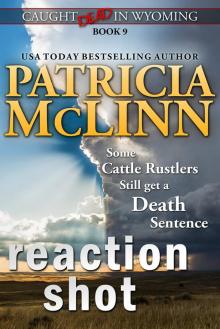 Reaction Shot (Caught Dead in Wyoming, Book 9)
Reaction Shot (Caught Dead in Wyoming, Book 9)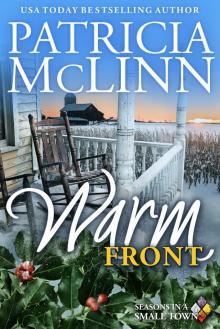 Warm Front
Warm Front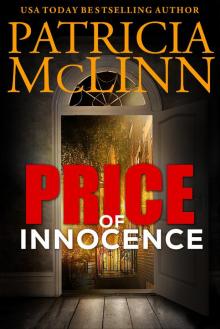 Price of Innocence
Price of Innocence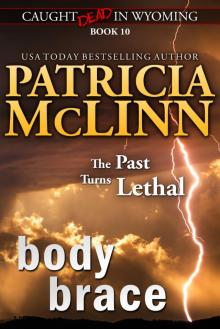 Body Brace (Caught Dead in Wyoming, Book 10)
Body Brace (Caught Dead in Wyoming, Book 10)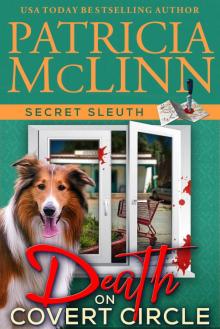 Death on Covert Circle
Death on Covert Circle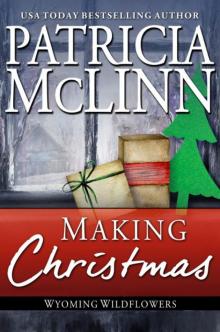 Making Christmas
Making Christmas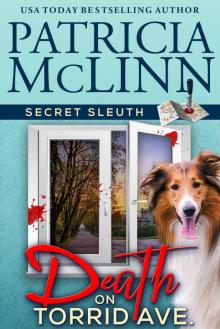 Death on Torrid Ave.
Death on Torrid Ave.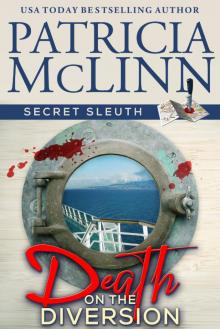 Death on the Diversion
Death on the Diversion The Rancher Meets His Match
The Rancher Meets His Match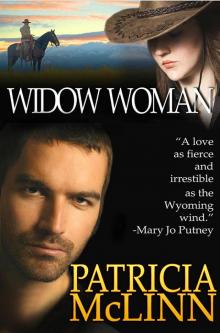 Widow Woman
Widow Woman The Runaway Bride
The Runaway Bride Hoops
Hoops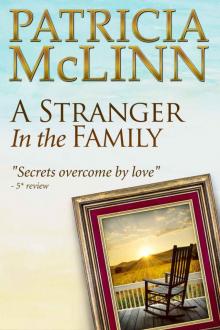 A Stranger in the Family (Book 1, Bardville, Wyoming Trilogy)
A Stranger in the Family (Book 1, Bardville, Wyoming Trilogy)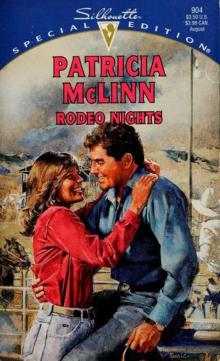 Rodeo Nights
Rodeo Nights Wedding Series Boxed Set (3 Books in 1) (The Wedding Series)
Wedding Series Boxed Set (3 Books in 1) (The Wedding Series)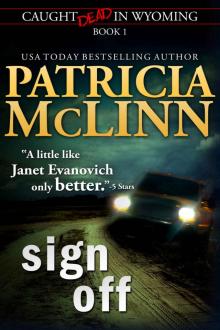 Sign Off (Caught Dead in Wyoming, Book 1)
Sign Off (Caught Dead in Wyoming, Book 1)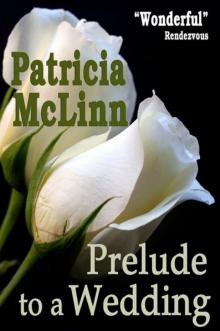 Prelude to a Wedding
Prelude to a Wedding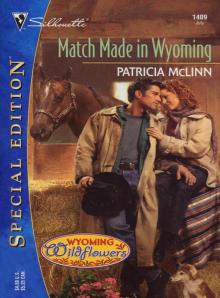 MATCH MADE IN WYOMING
MATCH MADE IN WYOMING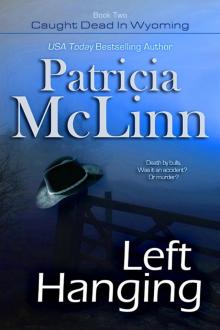 Left Hanging
Left Hanging What Are Friends For?
What Are Friends For?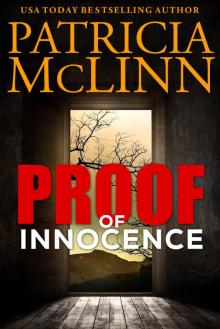 Proof of Innocence
Proof of Innocence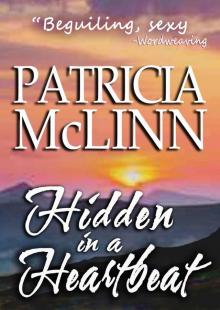 Hidden in a Heartbeat (A Place Called Home, Book 3)
Hidden in a Heartbeat (A Place Called Home, Book 3)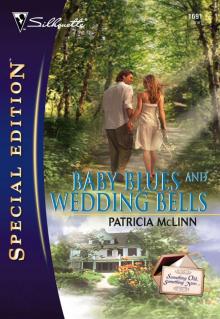 Baby Blues and Wedding Bells
Baby Blues and Wedding Bells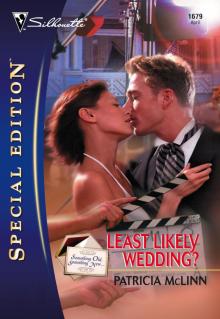 Least Likely Wedding?
Least Likely Wedding? Heart Stealers
Heart Stealers Grady's Wedding
Grady's Wedding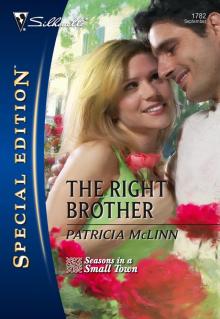 Right Brother
Right Brother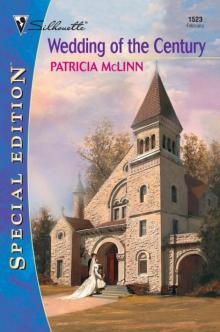 Wedding of the Century
Wedding of the Century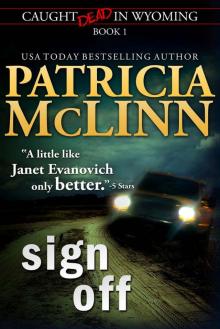 Sign Off
Sign Off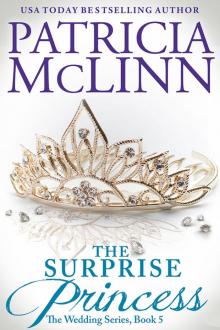 The Surprise Princess
The Surprise Princess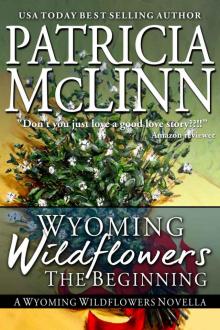 Wyoming Wildflowers: The Beginning
Wyoming Wildflowers: The Beginning